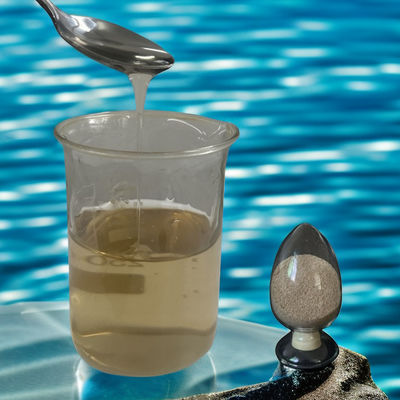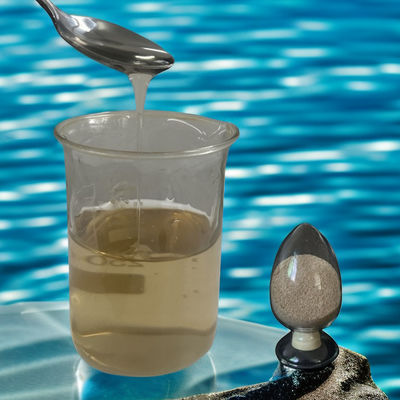Product Description:
Textile Printing Paste is a specially formulated mixture used in the textile industry to create printed designs on fabric. It consists of pigments, dyes, thickeners, binders, and other additives that work together to achieve desired color, texture, and durability.
The primary purpose of Textile Printing Paste is to transfer colors onto fabric surfaces accurately and evenly. It provides the necessary viscoelastic properties to ensure that the paste adheres to the fabric during printing and maintains its shape and definition.
Thickeners, such as pigment printing thickeners or reactive printing thickeners, are added to the paste to control its viscosity and enhance its printing properties. Thickeners help to prevent color bleeding and ensure sharp and well-defined patterns and designs.
Features:
The Advantages of Sodium Carboxymethyl Cellulose Aqueous Solution
Sodium carboxymethyl cellulose aqueous solution is clear, transparent, homogeneous and has favorable stability. Additionally, its viscosity won’t be affected by mechanical force, which means that it will stay the same even when the pump cycle or stirring is engaged. Further, it can be stored for indefinite amounts of time in an enclosed tank and will not be affected by temperature or bacteria so it can be taken out when desired for production needs.
Aside from having great viscidity and film-forming properties, sodium carboxymethyl cellulose aqueous solution can form smooth, wear-resistant, and flexible film on the surface of warp and can bear the forces of absolute strength, relative activity, and friction. This helps to provide conducive conditions for weaving exquisite high grade fabrics at high speeds.
The yarn that is processed with Sodium carboxymethyl cellulose aqueous solution is easily dry and glossy, with a soft hand feel. Desizing is also not an issue since it does not require chemical treatment or desizing agents.
Moreover, the yarn count and fabric processed with sodium carboxymethyl cellulose aqueous solution will not get yellowing or mildewed. This helps reduce substandard goods with defective spots or greasy dirt and also avoids damages by worms or rats.
Finally, when starch is used as the size, it requires a whole set of machinery and control instruments, which are quite complicated. However, using cellulose gum can dramatically simplify those requirements, improve the sanitary conditions of the workshop, and make the maintenance of mechanical equipment easier and while improving the production capacity of weaving machines.
Technical Parameters:
| Parameter |
Value |
| CAS No. |
9004-32-4 |
| Sieving Limits (80 Mesh) |
Above 98% |
| Model NO. |
Textile Grade |
| Classification |
Chemical Auxiliary Agent |
| D.S. |
Above 0.9 |
| Chloride |
Less Than 5% |
| Texture |
Smooth |
| Viscosity |
Medium |
| pH Value |
6.5-8.5 |
| HS Code |
3912310000 |
| Product Name |
Synthetic Thickener For Textile Printing |
| Application |
Textile Printing Paste |
Applications:
Apparel Manufacturing
Textile Printing Paste is extensively used in apparel manufacturing for adding decorative patterns and designs to garments. It offers an easy, efficient, and cost-effective way of creating unique and visually appealing prints on fabrics such as cotton, silk, polyester, and blends. To achieve this, the paste is applied through techniques such as screen printing, roller printing, or digital printing. This enhances the overall aesthetic appeal and marketability of the garments.
Home Textiles
Textile Printing Paste is also used in the production of home textile products. This includes bed linens, curtains, upholstery fabrics, and tablecloths, all of which can be effortlessly printed with intricate and decorative patterns. The paste enhances the visual appeal of these textiles, allowing customers to further personalize their home decor.
Promotional Products
Textile Printing Paste is widely used to create promotional products, such as bags, caps, and t-shirts. It enables the accurate printing of logos, slogans, and graphics, helping businesses in effective branding and marketing. The paste ensures prints are long-lasting and vibrant, thereby contributing to their overall visual impact and brand recognition.
Support and Services:
We provide technical support and service for our Textile Printing Paste products. Our service includes free consultation, troubleshooting, and product maintenance. We are committed to providing our customers with the best possible service and support for their textile printing needs. We are also dedicated to helping our customers find the best solutions to their specific needs. Our team of experienced professionals is available to answer any questions or concerns that you may have.
Packing and Shipping:
Textile Printing Paste should be packaged in sealed containers to protect it from environmental contaminants. Containers should be securely sealed and labeled with the product name, date of manufacture, and expiration date. Containers should be stored in a cool, dry place away from direct sunlight.
Textile Printing Paste should be shipped in a temperature-controlled environment and stored in sealed containers. Containers should be clearly labeled with the product name, date of manufacture, and expiration date. Shipping should include proper identification of the product and the hazardous materials contained in the product.

 Your message must be between 20-3,000 characters!
Your message must be between 20-3,000 characters! Please check your E-mail!
Please check your E-mail!  Your message must be between 20-3,000 characters!
Your message must be between 20-3,000 characters! Please check your E-mail!
Please check your E-mail! 



